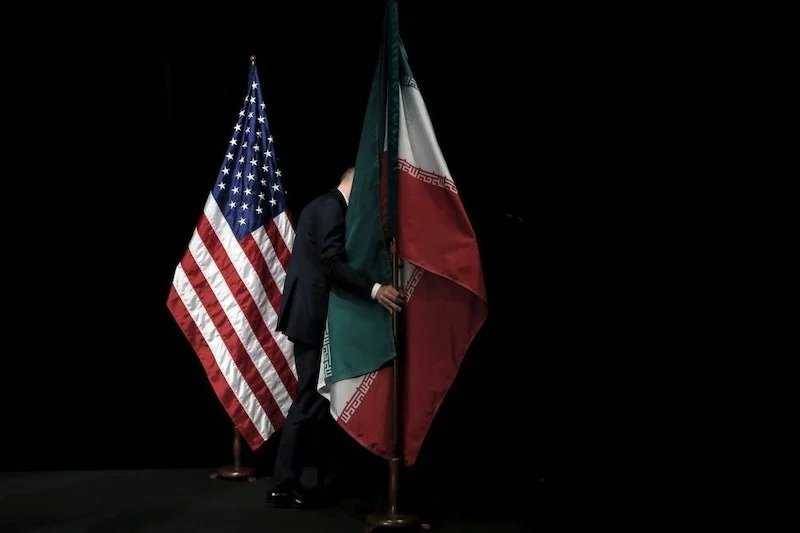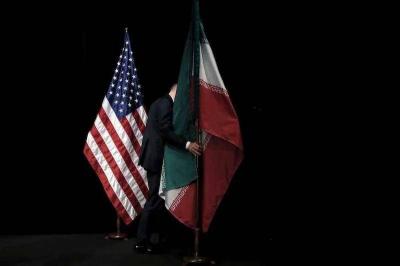Hebrew media reported that recent talks between Israeli Prime Minister Yair Lapid and U.S. President Joe Biden reveal that there will be no nuclear agreement with Iran at this time. According to the "Times of Israel" website, "the United States will not sign a new nuclear agreement with Iran," noting that this is the essence of the message Lapid received during his recent discussions with Biden and other U.S. officials, considering it "an achievement for Israel, which has made great efforts in recent months to prevent the formation of the nuclear agreement."
It appears that Israel's significant efforts in recent months have been beneficial. The site points out that "the apparent achievement, which has huge international repercussions, may be highlighted by Lapid in his election campaign, especially against opposition leader Benjamin Netanyahu, who never ceases to attack the Prime Minister on this issue."
The new nuclear agreement was at the heart of political and security discussions last year. Israel followed with concern the negotiations that took place between Iran and representatives of the major powers in Vienna and the drafts exchanged between the two parties in recent weeks.
After Prime Minister Lapid became convinced that the agreement was progressing, he changed the level of national security assessments and heightened the state of alert in the Palestinian areas, the war on terror, and the urgent need to strengthen the Palestinian Authority, which is losing its authority in a troubling manner, to the top of the priority list.
The new nuclear agreement that has been taking shape since Biden entered the White House about a year and a half ago focused on lifting sanctions on Iran in exchange for limiting its ability to access a nuclear bomb using enriched uranium. The Americans claimed that under the new nuclear agreement, Iran would not be able to enrich uranium to a level higher than 3.67% and would not be able to reach a level that could produce a nuclear weapon. This restriction on Iran's nuclear program would continue, according to the proposed agreement, until 2031.
According to American statements to Israeli journalist Barak Ravid, the political correspondent for "Walla News," two weeks ago, Iran would have to abandon all that it owns of enriched uranium to levels of 20% and 60% as part of the agreement. This includes hundreds of kilograms of enriched uranium that would have to be removed or diluted. The centrifuges used for uranium enrichment would be removed and stored on Iranian territory in a facility under the supervision of the International Atomic Energy Agency.
According to the agreement, the Americans claimed that Iran would not engage in any plutonium processing activities that could produce nuclear weapons and would redesign its plutonium reactor in Arak so that materials for a nuclear bomb could not be produced. Moreover, the Americans promised that if signed, the International Atomic Energy Agency would be allowed to renew its strict oversight system on Iranian nuclear facilities after this oversight had been significantly limited by the Iranians.
International Atomic Energy Agency oversight is one of the main points of contention in which Israel has intervened, as the Iranians rejected continued operations of the agency. The draft agreement that emerged with Iran caused severe tension and friction between Israel and the United States, in addition to many internal tensions within Israel. Two weeks ago, the head of the Mossad, David Barnea, briefed journalists on security assessments and warned of the hidden risks in the return of the great powers to the nuclear agreement with Iran.
According to a report in the Israeli newspaper "Yedioth Ahronoth," in a meeting with the Prime Minister, Barnea warned that the agreement would allow the Iranians to achieve enormous nuclear capabilities. According to Barnea, hundreds of billions of dollars would flow into Iran after sanctions were lifted, and the funds would be used to strengthen terrorist organizations surrounding Israel, including Hezbollah, Hamas, and Islamic Jihad. Additionally, Israel fears that the Iranians will accelerate the "Islamic Crescent" and bolster the Houthi rebels in Yemen and Iranian-affiliated militias in the region.
Barnea added that the emerging agreement represents a "strategic disaster" and stated that it would not bind Israel.
A confrontation arose between Lapid and Barnea, with the head of the Mossad currently in the United States for political-security discussions on the Iranian issue, criticizing the Americans, leading to a confrontation with Prime Minister Lapid, who disapproved of the approach. Opposition leader Benjamin Netanyahu, who dealt intensively with the Iranian issue during his years as Prime Minister, also entered the fray. Netanyahu claimed, like Barnea, that the agreement the U.S. intends to sign with Iran is worse than the previous nuclear agreement signed in 2015 by President Barack Obama, which was canceled in 2018 by President Donald Trump.
A meeting took place between the opposition leader and the Prime Minister in the presence of the military secretary of the government as required by law. After the meeting, Netanyahu claimed that Lapid and Defense Minister Benny Gantz would be responsible for the "Iranian nuclear failure." Netanyahu urged heads of state to meet with congressional members and influential figures to cancel the agreement.
In an interview with "Times of Israel" yesterday, a senior political official said, "Netanyahu taught us exactly what not to do. He went to Congress, talked to senior government officials and journalists in 2015, and we accepted the nuclear agreement. We worked quietly, made tremendous efforts, and reached the opposite result."
In two and a half weeks, Lapid will fly to attend the United Nations General Assembly meetings in New York. It remains unclear whether he will meet President Biden during the sessions. Biden is expected to be in New York between September 18 and 20, while Lapid will arrive in New York on the morning of September 20. Lapid will address the General Assembly on Thursday, September 22, and the Iranian issue is expected to be at the heart of his speech. Immediately after the speech, Lapid will quickly return to Israel to attend his son Yoav's wedding on Friday afternoon.




